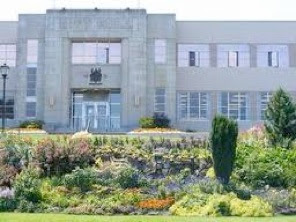Leadership with our garbage problem
Background: pressure is being applied to the Regional District of Nanaimo to allow a proposed Waste to Energy (WTE) incinerator to be built near Nanaimo in order to burn garbage from the lower mainland. So far they've turned this down, and likely could use some support from us. This is my letter of support.
To: corpsrv@rdn.bc.ca
cc'd to Michelle Stilwell MLA ; Len Krog MLA ; Doug Routley MLA
To: corpsrv@rdn.bc.ca
cc'd to Michelle Stilwell MLA ; Len Krog MLA ; Doug Routley MLA
Dear Directors of the Regional District of
Nanaimo,
I would like to applaud your decision in 2013 to oppose
the building of an WTE (Waste to Energy) incinerator facility in our area to
burn Metro Vancouver's garbage. Given the lack of industry in our area, and the
resulting lack of tax revenues to Nanaimo from the Duke Point industrial area, I
can appreciate that this may be a difficult one for the city councillors in
particular. I believe there is a better way.
I have just learned that Nanaimo has been chosen to be the
site of the next annual conference of Zero Waste International Alliance, expected in
September. Unlike the term "zero waste" being used by Metro Vancouver,
true zero waste involves resource recovery -reclaiming the raw
materials that were once used to create what is now garbage. Incinerators
especially do not belong to this category as they destroy those raw base
materials. Our own Nanaimo Recycling Exchange, one of the few in Canada to be
offering such a variety of resource recovery services (far beyond what most
for-profit companies offer). I applaud the RDN for assisting this worthy
non-profit in its early years.
When I compare the price to us as tax-payers this is what
I realise:
Financial costs as of July, 2014 (not including the
externalised costs of pollution):
Landfill $125/tonne
Composting: $122/tonne food waste; $45/tonne for yard
waste
The NRE: virtually nil.
The future financial cost of a WTE: $160+/tonne
We are truly getting a good deal.
Contrary to what is claimed by the industry, WTE
incinerators directly compete for materials going to Resource Recovery plants.
See, for example, http://e360.yale.edu/feature/incineration_versus_recycling__in_europe_a_debate_over_trash/2686/.
What if we were to build a world-class Resource Recovery
plant at Duke Point? Compared to the WTE this would provide more jobs, spur more
industries (utilising the recovered resources) that generate a greater tax base,
keep money local (vs. profits sent elsewhere), avoid unnecessary air pollution
(don't we already have enough?), maintain land values and tourism, and provide
us with greater self-sufficiency! Now this is vision!
Given that the RDN is already a leader in
resource recovery (of which composting and recycling are two components)
it makes sense for us to continue to provide
this kind of vision and leadership.
I expect that the proponents of the WTE will be trying to
put pressure on you and the City to allow them to build, should the
proponents be awarded the contract. They have deep pockets. Their international
partners are looking for opportunities to expand, particularly given that the
countries in Europe that earlier embraced this technology are realising they
cannot reclaim any more materials without first closing down some (eventually
all) of the incinerators now in operation. The WTE industry is wise to try to
move their business to North America and elsewhere. Due to your leadership they
may not be able to choose greater Nanaimo.
Can we continue to count on you remaining true to your
initial decision in light of the pressure you are likely
experiencing?
I am sending this congratulations along to a number of
others who likely also appreciate your leadership and earlier decision. I am
also cc'ing our local MLA's.
Sincerely,
Ian.



Comments
Post a Comment
Thank you for commenting on this post. Your comment will be moderated before being posted in order to remove spammers.